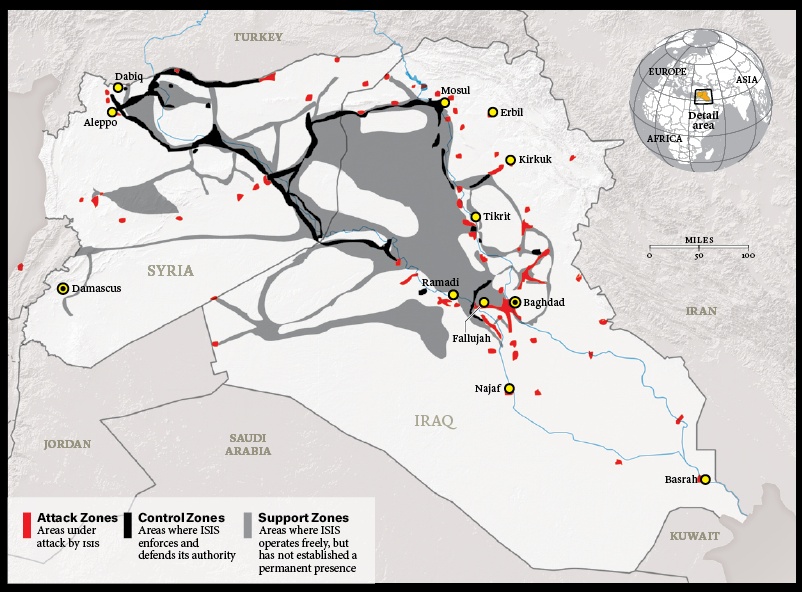Mark Steyn has read some history:
Before the civil war, Beirut was known as “the Paris of the east”. Then things got worse. As worse and worser as they got, however, it was not in-your-face genocidal, with regular global broadcasts of mass beheadings and live immolations. In that sense, the salient difference between Lebanon then and ISIS now is the mainstreaming of depravity. Which is why the analogies don’t apply. We are moving into a world of horrors beyond analogy.
A lot of things have gotten worse. If Beirut is no longer the Paris of the east, Paris is looking a lot like the Beirut of the west — with regular, violent, murderous sectarian attacks accepted as a feature of daily life. In such a world, we could all “stand to read” a little more history. But in Nigeria, when you’re in the middle of history class, Boko Haram kick the door down, seize you and your fellow schoolgirls and sell you into sex slavery. Boko Haram “could stand to read” a little history, but their very name comes from a corruption of the word “book” — as in “books are forbidden”, reading is forbidden, learning is forbidden, history is forbidden.
Well, Nigeria… Wild and crazy country, right? Oh, I don’t know. A half-century ago, it lived under English Common Law, more or less. In 1960 Chief Nnamdi Azikiwe, second Governor-General of an independent Nigeria, was the first Nigerian to be appointed to the Queen’s Privy Counsel. It wasn’t Surrey, but it wasn’t savagery.
Like Lebanon, Nigeria got worse, and it’s getting worser. That’s true of a lot of places. In the Middle East, once functioning states — whether dictatorial or reasonably benign — are imploding. In Yemen, the US has just abandoned its third embassy in the region. According to the President of Tunisia, one third of the population of Libya has fled to Tunisia. That’s two million people. According to the UN, just shy of four million Syrians have fled to Turkey, Jordan, Lebanon and beyond. In Iraq, Christians and other minorities are forming militias because they don’t have anywhere to flee (Syria? Saudia Arabia?) and their menfolk are facing extermination and their women gang-rapes and slavery.
These people “could stand to read” a little history, too. But they don’t have time to read history because they’re too busy living it: the disintegration of post-World War Two Libya; the erasure of the Anglo-French Arabian carve-up; the extinction of some of the oldest Christian communities on earth; the metastasizing of a new, very 21st-century evil combining some of the oldest barbarisms with a cutting-edge social-media search-engine optimization strategy.




